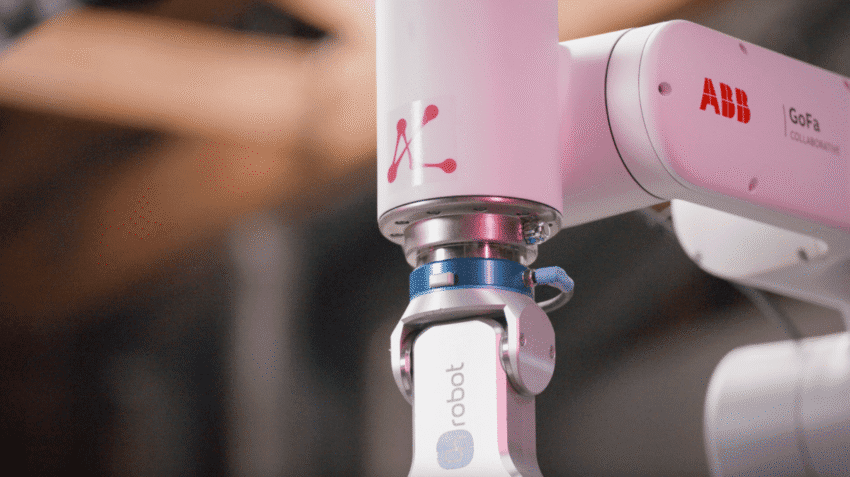
mbodi will show how it can train Mbodi is set to demonstrate its innovative approach to training robots using AI agents at the upcoming TechCrunch Disrupt 2025 event.
mbodi will show how it can train
Introduction to Mbodi
Founded with the vision of simplifying the interaction between humans and machines, Mbodi has developed a platform that leverages artificial intelligence to enhance the training of robots. The company aims to bridge the gap between complex programming and user-friendly interfaces, allowing users to train robots using natural language prompts. This approach not only democratizes access to robotic training but also opens up new avenues for automation across various industries.
The Role of AI Agents in Robot Training
At the core of Mbodi’s technology is a cluster of AI agents that facilitate the training process. These agents are designed to interpret user prompts and translate them into actionable tasks for the robots. This system allows users to interact with the robots in a more intuitive manner, reducing the need for specialized knowledge in programming or robotics.
Natural Language Processing
One of the standout features of Mbodi’s platform is its use of natural language processing (NLP). Users can issue commands or ask questions in plain language, and the AI agents will parse these inputs to determine the appropriate actions for the robot. This capability is particularly significant as it lowers the barrier to entry for individuals and organizations that may not have technical expertise.
Training Efficiency
The AI agents not only interpret commands but also learn from user interactions. This means that over time, the system becomes more adept at understanding user preferences and optimizing the training process. The result is a more efficient training cycle, where robots can be programmed to perform tasks with increasing accuracy and speed.
Applications of Mbodi’s Technology
Mbodi’s technology has a wide range of applications across various sectors. From manufacturing to healthcare, the ability to train robots using natural language can significantly enhance productivity and efficiency.
Manufacturing
In manufacturing environments, robots are often tasked with repetitive and precise operations. Mbodi’s platform allows factory workers to quickly train robots to adapt to new tasks without extensive downtime. For instance, if a production line needs to switch from assembling one product to another, a worker can simply instruct the robot using natural language, and the AI agents will handle the rest.
Healthcare
In the healthcare sector, robots are increasingly being used for tasks ranging from surgical assistance to patient care. Mbodi’s technology can enable healthcare professionals to train robots to perform specific tasks, such as administering medication or assisting with mobility, simply by describing the desired actions. This could lead to improved patient outcomes and more efficient use of medical staff time.
Education
Education is another field where Mbodi’s technology can make a significant impact. Educational institutions can utilize robots for teaching purposes, and with Mbodi’s platform, educators can easily train these robots to deliver lessons or assist students in various subjects. The ability to customize robot behavior through natural language prompts can create a more engaging learning environment.
Implications for the Future of Robotics
The implications of Mbodi’s technology extend beyond immediate applications. By making robot training more accessible, the company is contributing to a broader trend of automation in various industries. As more organizations adopt robotic solutions, the demand for user-friendly training methods will likely increase.
Democratization of Technology
Mbodi’s approach represents a significant step toward the democratization of technology. By allowing users to train robots without needing extensive technical knowledge, the company is empowering a wider range of individuals and organizations to harness the benefits of automation. This could lead to increased innovation as more people experiment with robotic applications in their respective fields.
Potential Challenges
Despite the promising aspects of Mbodi’s technology, there are challenges that the company must navigate. One of the primary concerns is ensuring the reliability and safety of robots trained using AI agents. As robots become more autonomous, the potential for errors or malfunctions increases, which could pose risks in critical environments such as healthcare or manufacturing.
Ethical Considerations
Additionally, the ethical implications of using AI in robotics cannot be overlooked. As robots become more integrated into daily life, questions surrounding accountability, privacy, and job displacement will need to be addressed. Mbodi will need to engage with stakeholders, including policymakers and industry leaders, to ensure that its technology is developed and deployed responsibly.
Stakeholder Reactions
The response to Mbodi’s technology has been largely positive, with industry experts and potential users expressing excitement about the possibilities it presents. Many see the potential for increased efficiency and productivity in various sectors, while others are eager to explore the creative applications of the platform.
Industry Experts
Industry experts have highlighted the significance of Mbodi’s approach in making robotics more accessible. “The ability to train robots using natural language is a game-changer,” said Dr. Emily Chen, a robotics researcher. “It opens up new opportunities for innovation and collaboration between humans and machines.” This sentiment is echoed by many in the field, who believe that Mbodi’s technology could pave the way for a new era of human-robot interaction.
Potential Users
Potential users, including businesses and educational institutions, are eager to explore how Mbodi’s platform can enhance their operations. Many organizations are currently seeking ways to integrate robotics into their workflows, and the ease of training offered by Mbodi could be a decisive factor in their decision-making process. “We are always looking for ways to improve efficiency and reduce costs,” stated Mark Thompson, a manufacturing manager. “If Mbodi can deliver on its promises, it could be a valuable asset for us.”
Conclusion
As Mbodi prepares to showcase its technology at TechCrunch Disrupt 2025, the anticipation surrounding its demonstration underscores the growing interest in innovative solutions for robotic training. The company’s use of AI agents to facilitate user-friendly interactions represents a significant advancement in the field of robotics. With applications spanning multiple industries, Mbodi is poised to make a lasting impact on how robots are trained and utilized.
As the landscape of automation continues to evolve, the importance of accessible and efficient training methods will only increase. Mbodi’s approach not only addresses current needs but also sets the stage for future developments in robotics. The implications of this technology are vast, and as stakeholders continue to engage with Mbodi, the potential for collaboration and innovation remains high.
Source: Original report
Was this helpful?
Last Modified: October 28, 2025 at 2:37 pm
2 views















